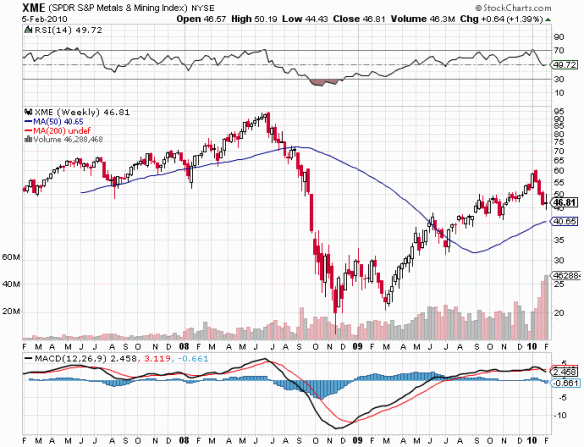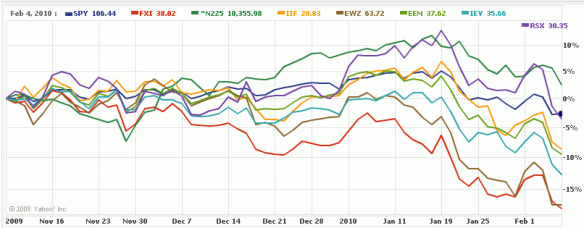It may be interesting to look at some of the public companies in the hardest-hit European countries, since the stock indices here are lower than anytime in at least a decade. Here are the results of a search for Greek shares, with an eye towards companies in defensive industries that will not be hurt, or could even benefit from a weaker currency.
All of these businesses are likely to survive a very bad economy, even if they go bankrupt – the question is how the equity holders will fare.
Athex index chart (Athex is now 60% lower than at the 2009 bottom): http://www.bloomberg.com/quote/FTASE:IND/chart
List of top 20 Greek companies by market cap as of May 2010: http://topforeignstocks.com/2010/05/09/the-top-20-greek-companies-by-market-capitalization/
Here are a few names – these first 2 look strongest to me (bottler and utility):
Coca Cola Hellenic Bottling Co:
Biggest foriegn Coke bottler
http://www.bloomberg.com/quote/EEEK:GA/chart
http://en.wikipedia.org/wiki/Coca-Cola_Hellenic
EUR 13.00, EPS 0.93 – not really cheap yet by earnings, 1.62x book. Keep an eye on this one.
Public Power Corp SA , ticker PPC
Biggest utility in Greece. To raise cash, the gov sold 17% of its until then 51% stake.
Plants are mostly coal-fired.
http://www.bloomberg.com/quote/PPC:GA
http://en.wikipedia.org/wiki/Public_Power_Corporation_of_Greece
EUR 5.30, EPS 1.10 – very cheap by earnings, 15% dividend yield.
Hellenic Telecommunications Organization S.A., ticker HTO
http://www.bloomberg.com/quote/HTO:GA
http://en.wikipedia.org/wiki/OTE
3.6% div yield, 15 PE. 1.14x book – not cheap at all, though stock is way down
Boutaris J & Sons Holdings SA , ticker MPK (preferred shares also traded)
6 Greek wineries, one in France, most recognised Greek wine brand
Company website: http://www.boutari.gr/?TEFORz1FTg==
http://www.bloomberg.com/quote/MPK:GA
No earnings data available, but trading at 0.3x book and 0.27x sales.
Attica Group
Largest ferry operator
http://www.bloomberg.com/apps/quote?ticker=ATTICA:GA
http://en.wikipedia.org/wiki/Attica_Group
No earnings data, but 0.12x book
ANEK Lines SA
Ferries






















